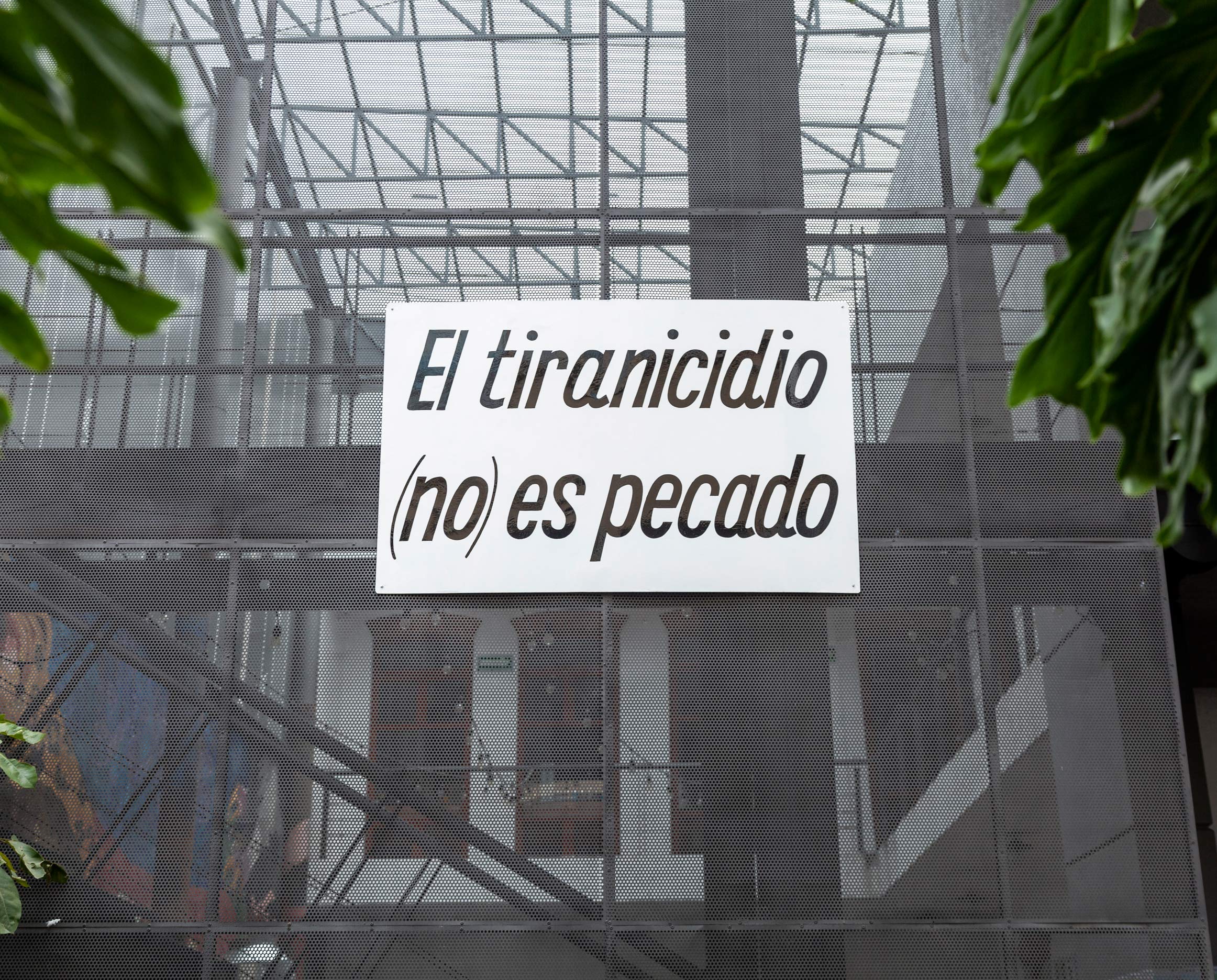 El tiranicidio (no) es pecado.
Tyrannicide is (not) a sin
El tiranicidio (no) es pecado.
Tyrannicide is (not) a sin
(no) es pecado
June-August 2018.
Intervention at the exhibition Glaring Sights, Curated by Kimberlee Córdova and Fabiola Iza.
Enamel painting
90 x 130 cm.
The phrase on the panel is an interpretation of a jesuit text from the XVI Century.
June-August 2018.
Intervention at the exhibition Glaring Sights, Curated by Kimberlee Córdova and Fabiola Iza.
Enamel painting
90 x 130 cm.
The phrase on the panel is an interpretation of a jesuit text from the XVI Century.
Tyrannicide is the killing or assassination of a tyrant or unjust ruler, usually for the common good, and usually by one of the tyrant's subjects.
One of the commandments (principles relating to ethics and worship, which play a fundamental role in Judaism and Christianity) is THOU SHALT NOT KILL. But from a casuistic perspective (a practice particularly common in Jesuits) in some cases it could be “okay" to kill.
Casuistry is, in applied ethics, reasoning based on cases. It represents a critique of reasoning based on principles or rules. Casuistry is the resolving of moral problems by the application of theoretical rules to particular instances. For example, while a principle based approach might claim that lying is always morally wrong, a casuistic approach would state that depending on the details of a particular case lying may or may not be legal or ethical.
Citing the Jesuit priest Father Juan de Mariana in his book "Del Rey y de la institución de la dignidad real” (From the King and the Institution of Real Dignity) (XVI Century):
"It is a healthy thought that princes understand that, if they oppress the republic and become insufferable for their crimes and vices, they live in such condition that, not only of right but with glory and praise, they may be stripped of their life (...)"
"(...) By the same right of self-defense, the life of the prince, declared public enemy, may be taken away."